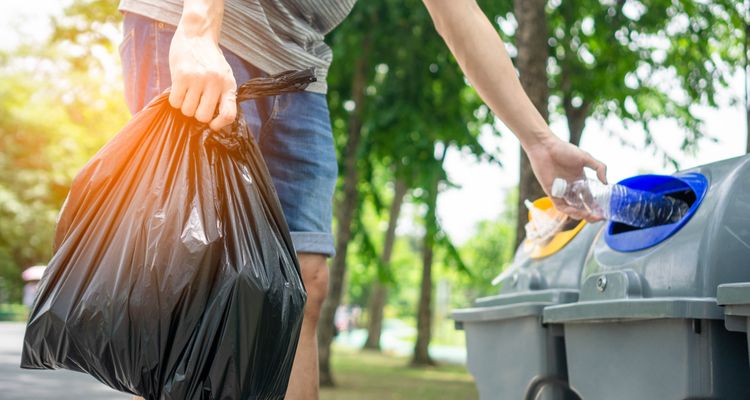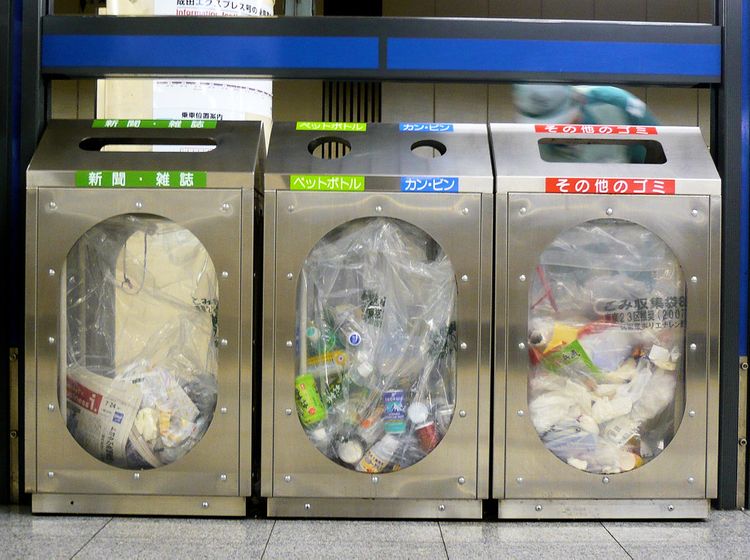Garbage and recycling management for rental properties in Japan
An important consideration for a rental property is the recycling and rubbish management requirements that are set by the local councils. As many areas in Japan have fairly strict and complex recycling rules, it is important to make the process of rubbish separation as clear and easy as possible for your guests to follow. Generally speaking, there are four main types of garbage categories. However, this may differ slightly depending on where you’re based so best to check with your local council or property manager.

1. Combustible or moeru gomi (燃えるごみ)
Combustible rubbish is basic burnable trash. Items like paper waste (paper towels), paper bags and cups as well as cardboard type food trays, fabrics, and similar items go in there. This section also includes sanitary waste.
2. Kitchen waste or nama gomi (生ごみ)
Food waste, peels, and any left over raw food scraps often have a separate trash bag and due to the decomposable nature of this kind of rubbish it’s usually collected twice a week.
3. Plastics (プラ)
Japan is famous for its packaging and the incredibly convenient and beautifully presented food boxes available from any corner convenience store. An unfortunate downside however, is the massive amounts of plastic, bags and wrappings that are generated. One dedicated rubbish bin conveniently located in the kitchen for washed or rinsed plastic packaging usually takes care of this type of rubbish.
4. Recyclables or shigen gomi (資源ごみ)
Within this category, there are often three separate subcategories: cans (カン), glass bottles (びん), and PET Bottles (ペットボトル). These items need to be separated, and they are usually collected once a week or fortnight, with each type of material being picked up on a separate day.

Trash cans
Alpine interiors usually manages the local rubbish recycling requirements by providing three trash containers within the kitchen cabinetry or under the island kitchen for categories 1-3 above. The recyclable items (category 4), will often have a separate set of trash cans a little out of the way in either a pantry or garage. Property management will provide the necessary color-coded rubbish bags and will usually pick up the rubbish on the specified day.
Slippers
As Japanese properties generally follow a shoes off policy, having a slippers basket in the entrance will help guests to both embrace the cultural experience while also helping to reduce wear and keep the property clean.
The final word
While it can be a little overwhelming at first, Japan’s garbage system doesn’t take too long to get used to. The responsibility for rubbish management is increasingly on the local property managers’ who can in turn guide and manage the guests.
